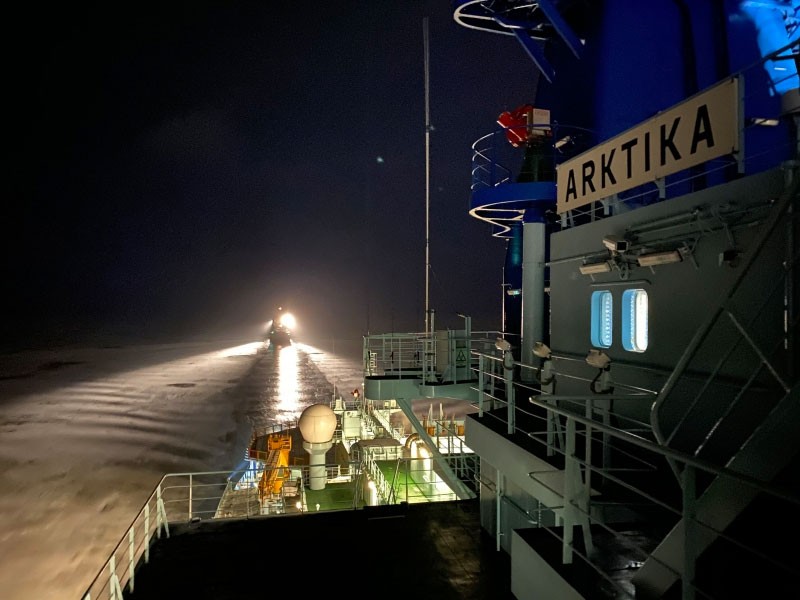For isolated Russia, Arctic shipping lanes hold new allure
With Russian trade pivoting from Europe to Asia in the wake of Ukraine war sanctions, the Northern Sea Route could become a key shipping artery.

With export corridors under pressure, Russia should look towards the Northern Sea Route, Deputy Prime Minister Aleksandr Novak says.
“With the new and unprecedented pressure on Russian economy from Western countries, the significance of the Northern Sea Route as a marine transport artery […] is manyfold increased,” Novak said in a government meeting this week.
According to Novak, the far northern shipping route is especially important as Russia is experiencing capacity limitations on its east-bound Baikal-Amur (BAM) and Transsiberian railway lines.
“Our task is to develop this artery in a systematic manner,” Novak said.
As economic relations with European countries have collapsed following the war in Ukraine and subsequent international sanctions, Moscow seeks to reorient trade towards the Asian and Pacific region.
In the meeting room were officials from several government agencies, state nuclear power company Rosatom and representatives of the key companies engaged in the region.
According to Rosatom, shipments on the Northern Sea Route are this year expected to reach 33.8 million tons, which is about 800,000 tons higher than in 2021.
However, the positive figure notwithstanding, shipments on the route might still drop significantly over the years to come. According to a report presented at the meeting by Rosatom, forecasts for goods volumes are “undergoing corrections.”
Originally, the target for shipments on the route, as highlighted by President Vladimir Putin himself, is an annual of 80 million tons of goods by 2024. A few years later, in 2030, shipments are to reach as much as 200 million tons, according to a government plan presented in early August this year.
However, Russia does not have the ships needed for the increase in shipments. Sailing on the Northern Sea Route requires ships with a high level of ice class, and Russian shipyards will not be capable of meeting demands. Several of the world’s leading yards on ice class vessels have joined the international sanctions against Russia.
Furthermore, given the international sanctions imposed on Russia, hardly any foreign vessels will engage in commercial shipments on the route any time soon. Figures available in Rosatom’s new website on the Northern Sea Route show that all the vessels that have been given permission for sailing on the route in 2022 are either Russian-flagged or controlled by Russian companies.
Russia is in the process of building a new fleet of nuclear-powered icebreakers, and these vessels, including the super-powerful Lider, are believed to be able to open the route for year-round commercial shipping. But there will be several more years before the whole fleet is on the water.
The new LK-60 icebreakers Arktika and Sibir are already sailing in Arctic waters. But the next icebreaking vessels that will be put in operation are either several years away or will serve specific industrial projects.
According to leader of Glavsevmorput Vladimir Arutyunyan, the “Ural” will be ready for operations in 2022. However, the icebreaker will operate almost exclusively for Vostok Oil, the grand Arctic oil project developed by Rosneft, he said.
There is a lack of icebreakers, he underlined, Telegram channel Arctic Online informs.
Glavsevmorput is a subsidiary company of Rosatom engaged in the development of the Northern Sea Route.
Far from everyone believes in Russia’s ambitious plans for the Arctic route.
In a recent interview, leader of consultancy company Gecon Mikhail Grigoriev said he has been skeptical towards the official government policy on the Northern Sea Route since at least 2018 when Vladimir Putin requested that annual goods volumes on the route reach 80 million tons by 2024.
According to Grigoriev, it is not clear from where the vast goods volumes will come.
“I know well the basic federal objectives for goods traffic, and I do not see these kind of volumes,” he says in a lengthy interview to news journal Korabel.
“I get the impression that this is nothing but a play staged by state officials,” he underlined.